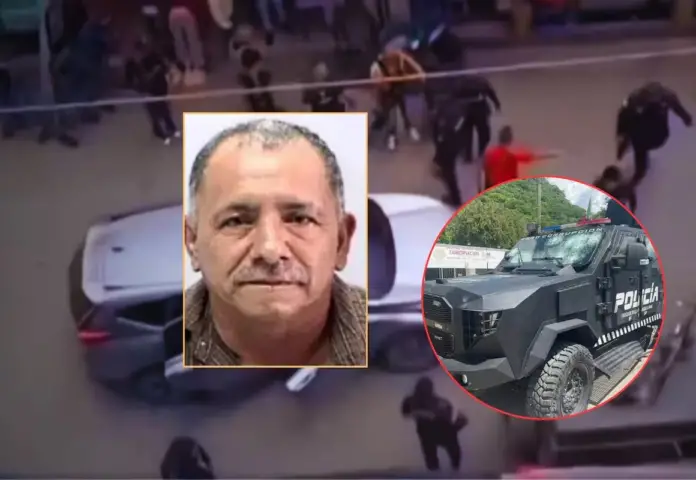One of the main criminal operators in southern Mexico, Baldemar Calderón Carrillo, known as “Don Balde,” was killed by Mexican security forces in a confrontation that crossed the border with Guatemala, a situation that has led to diplomatic tensions between the two countries.
According to Reforma, Calderón was the founder of the Chiapas and Guatemala Cartels and maintained an alliance with the Jalisco New Generation Cartel (CJNG).
He was identified as one of the four men killed on June 8 during a shootout in the border area of Frontera Comalapa, Chiapas, and Huehuetenango, Guatemala.
Mexican cartels are expanding their fiscal huachicol network into Guatemala and Belize, involving Pemex employees, customs agents, shipping companies, and front companies for the CJNG and the Sinaloa Cartel.
Who was “Don Balde”?
Baldemar Calderón Carrillo was originally from Guatemala, but operated on both sides of the border.
In the region, he was widely known for financing illicit activities related to drug and arms trafficking.
He was directly linked to the CJNG (Chiapas and Guatemala Cartel) and to the strengthening of the so-called Chiapas and Guatemala Cartel, an organization with growing influence in the south of the country.
One of his main allies was his son, known as “El Teniente,” who was also killed in the same confrontation.
Why were they being sought?
Mexican authorities held them responsible for the murder of five police officers on June 2 in Frontera Comalapa. Following this incident, search and reconnaissance operations in the region intensified.
A Mexican source stated that “he was a lieutenant, but there are bosses at the top, but they don’t come out in the open. They take care of themselves, but I don’t think the Guatemalans are going to rest easy; they were offended in their own home.”
What consequences did the operation have?
The shooting that led to the death of “Don Balde” and his son occurred partially in Guatemalan territory, which has generated unrest among authorities in the neighboring country.
Mexican cartels expand their fuel theft network into Guatemala and Belize, involving Pemex employees, customs agents, shipping companies, and “front” companies for the CJNG and the Sinaloa Cartel.
Diplomatic sources consulted by Reforma indicated that a review process has begun for the armed incursion in Huehuetenango, which could escalate to a bilateral level.
What is the current situation on the border?
The Comalapa border region has been the scene of increasing violence in recent months. In particular, criminal groups operating there seek to control illegal trafficking routes to Central America.
Furthermore, the death of a key operator like “Don Balde” could shift the balance between cartels and generate retaliation or internal disputes.
Response from Mexican Authorities
The Mexican Ministry of Foreign Affairs (SRE) issued a formal apology to the Guatemalan government on Tuesday for the events that occurred on June 8.
Through the social media platform X, Mexico published a diplomatic note addressed to the Guatemalan government, in which Mexico acknowledged the events and reiterated its commitment to territorial sovereignty and international law, promising to strengthen bilateral cooperation and border security mechanisms.

Source: elimparcial




